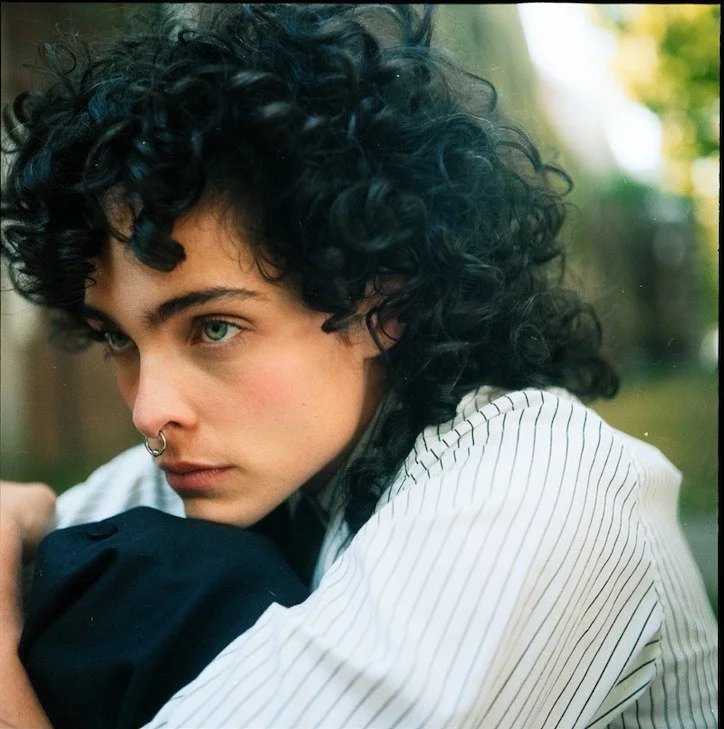
Peatlands & Grief
workhop series

What if the climatological, social and ecological crises were not about life, but about death?
We are living in a world that chimes with the ever-present sound of extinction and violence, and yet we rarely leave space to embody this loss. Peatlands are composed of generations of semi-decomposed organic material. They are holders of the deceased like no other Earth system. In doing so, they are also protectors of our climate, biodiversity and water reserves. Across the world, bogs are being drained, causing slow erosion and erasing these ancient beings from the landscape. The loss encompasses not only the ecological but sites of cultural and spiritual connection between human and earth.
In this four-past workshop series, we are opening a space for exploring how to grieve through peatlands and for peatlands. By curating places and practices that allow us to dwell in and move through the deep dark waters of grief can help to create resilience in our struggles for liberation and system change. Grieving the changes and losses we have been, are and will be encountering can reveal something about ourselves and, ultimately, what it is we want to keep hold of going forward. In doing so, collective grief has the potential to take us beyond a doomism world-view towards a renewed sense of life and determination.
Background information: This workshop series emerged from a 6-month peer-to-peer learning journey titled DeathxLife, facilitated by an organisation called HuddleCraft. With support from the Collective Imagination Fund, we designed and trialled the series in 2024, both within the RE-PEAT team online and with the general public during public events. Since then, we have refined the workshops based on participant feedback.

Peatlands and Grief WORKSHOP series
Workshop 1: Sinking into the dark earth
Bogs have often been seen as portals, liminal spaces for connecting with the spirit realm. This workshop embraces the strange and murky times we are living in by providing a space to encounter the unknown and to get more comfortable being uncomfortable. The session is about exploring what comes up when we enter the dark earth and discovering creative ways to re-emerge transformed. Through a combination of guided meditations, imagination exercises, and a creative writing session, the participants will be invited to move through a state of personal and collective grief through and with the bog as our guide.
Workshop 2: Bodies of grief
Grief is political, with some bodies being grieved more than others. This session will help us explore the parallels between peatlands and bodies in our shared vulnerabilities to loss, destruction, exploitation and discrimination in an intersectional way. Connecting to our grief through movement-based practices like the Theatre of the Oppressed can help us to recognize our interdependence and develop compassion for people and ecosystems who may be more vulnerable to violence against their bodies without erasing the differences we face.
Workshop 3: Time to act as if we are deep in time
Peatlands experience time in ways beyond the human. In this session, we ask how connecting with peatlands may help us to think about time, grief, and progress in ways that challenge individualist perspectives. Thinking through the temporalities of peatlands can deepen our sense of ancestral connection and our commitments to fighting for change that we may never see the results of. Through a combination of guided meditation, soundscapes, collage, and creative writing, peatlands draw us into deep time. These exercises disturb the assumption that time is linear, while reminding us of our collective potential and the transformative power of slowness.
Workshop 4: Restoration of our inner and outer landscapes
In this final session, we explore restoration for both landscapes and ourselves. Participants are invited to explore what healing can look like, from the damaged bogs around us to the quieter wounds within. Together, we will engage with real-world restoration initiatives and reflect on the layered, non-linear paths toward repair. Through the collective act of pickling and fermenting food, we’ll explore decay and transformation as interconnected processes, like a transformative urn, holding both what we let go of and what we choose to preserve. This tactile ritual becomes a metaphor for the complexities of grief, reminding us that, like peatland restoration, there is no single recipe for moving through and holding loss. Instead, we explore how to carry forward the questions raised throughout the workshop series as we return to our daily lives.

Past workshops
Workshop at 2.dh5, Amsterdam, February 2024
This workshop took place as part of a wider activist festival. It was the first in-person trial that we did of this concept and the workshop was the first of the series, Sinking into the dark earth. It was attended by approx. 25 participants.

Workshop at Peat Fest in House of Anetta, London, October 2024
This workshop took place as part of Peat-Fest London. It was our second in-person trial and the third workshop of the series, Time to act as if we are deep in time. It was attended by approx. 15 participants.

4-part workshop series at OT301, Amsterdam, November 2024
This workshop took place as part of RE-PEAT’s 6 month residency at OT301, it was our first in-person trial for all four workshops. It was attended by approx. 30 participants over the two week-ends.

Our work as artists, filmakers, writers, researchers, and more
Moss Berke
Click here to read more, Moss Berke's poem can be found from page 159-163

Lara Lane Plambeck
Lara-Lane has been residing in northern Germany the past years reconnecting with her ancestry, wounds and local peatlands. Struggling against the German complicity in the genocide in Palestine while spending time with her more-than human ancestors, her writing about complicity and grief has become entangled with deep soil memory and wisdom as you can read in her poem „Tell It to the Peat“ on pp. 71ff in the zine „What to remember, what to forget“. She co-created and curated this work with fellow activists, academics and creatives similarly devastated by Germany‘s re-appearing fascist and genocidal politics in early 2024.After the initially intense engagement in pro-Palestinian activism, Lara-Lane was confronted with a sudden health decline. Trying to cope with this added layer of grief, she kept writing and searching for wisdom on how to do movement work when chronically sick by - again- turning to her ancestral support of deep-time: peatlands. One piece of her writing related to this you can find in „The World Is a Wound“ on pp. 50ff.

Holly Bartley
Frankie Turk
click on the image to watch the video!

Our dream is to expand the workshop series
into various settings and communities
Facilitators:
Frankie Turk is a writer, filmmaker and co-founder of the collective RE-PEAT.
Lara-Lane is a writer, researcher and cultural worker.
Holly Bartley, is a designer-researcher and filmmaker.
Moss Berke is an artist, writer, researcher and recent graduate of the Research Masters in Gender Studies.
Frankie Turk, frankie_turk@re-peat.earth
Lara-Lane Plambeck, laralane.plambeck@re-peat.earth
Holly Bartley, holly_bartley@re-peat.earth
Moss Berke, moss_berke@re-peat.earth















